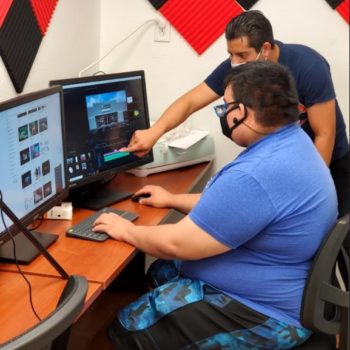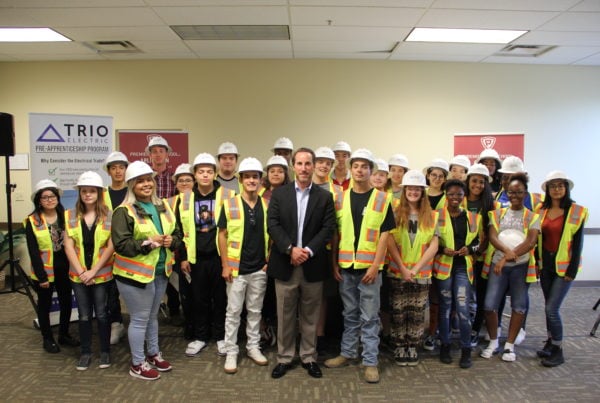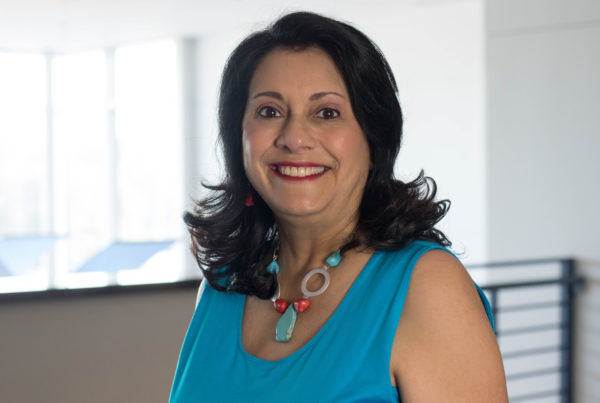From STEM to classical and early college programs, ResponsiveEd values providing all families with real school choices for their students, while focusing on providing a virtue-based education with a content-rich curriculum. Reading quality literature is an important element of a content-rich curriculum.
Joy Morris, ResponsiveEd’s Director of K-12 English Language Arts and Reading (ELAR), says an ELAR program can be judged as content-rich based on the works students are studying.
“What genres are the students studying? Does it include novels, poetry, nonfiction and short stories? What authors? Even more important are the lessons students are learning once they have read those authors and genres. What can they take away from them? How does it contribute to their development as human beings?” said Ms. Morris.
While ResponsiveEd’s different school programs may have differences in ELAR content, each school seeks to build a literacy in literature and engage students in timeless ideas. Founders Classical Academy of Lewisville Headmaster Jason Caros believes the content students read is essential as they transition from learning to read to reading to learn.
“At Founders, we intentionally nourish our children on rich literature that includes classic fairy tales, nursery rhymes, novels and poems. Titles range from ‘Cinderella’ and ‘Little House in the Big Woods’ to the ‘Iliad’ and ‘Crime and Punishment.’ These stories are considered classics because they are written in noble language that help to stir the moral imagination, they teach readers important lessons about what it means to be human, and they pass the test of time. By engaging in classics, our students experience the best of what has been written, they can engage in what has been called ‘the great conversation,’ and they develop high standards by which to judge other books of literature,” said Mr. Caros.
English Language Arts and Reading Incorporates Character Education
As a text-driven curriculum, character education has a natural place in a content-rich program. A broad range of reading naturally allows for extensive character analysis.
“We ask teachers to think about how they can bring virtue into the conversation. Just talking about the characters in each day’s reading provides lots of material. Were the characters trustworthy? Were they kind? Were they honest? It is simply a natural part of the program,” said Ms. Morris.
Helping Your Students Develop into Lifelong Readers
Allison Leonard, a third grade ELAR teacher at Corinth Classical Academy, has experience teaching at a traditional public school as well as home schooling, and she believes a content-rich approach helps keep students engaged in the classroom
“Our program builds in vocabulary, recitations, penmanship, poetry, literature and grammar all together and I think it really helps keep students engaged and excited. They work independently, but they also come together to share their writing and ideas with the class, which results in lots of positive peer encouragement. One thing they have really been excited about this year is realizing what they study in ELAR connects to things on their other classes such as history or science,” said Ms. Leonard.
Reading and writing are essential communication skills students will use throughout their lives. Making sure each student is reaching their reading and writing potential is each teacher’s goal.
“Our teachers are very cognizant of the fact that we are creating lifelong learners because reading and writing skills will take them through their whole life. It is all about making sure your classes are fun and engaging the students interests, but also making sure your lesson are designed so that your students get the most of them,” said Ms. Morris.
Beyond engaging classrooms, a content rich curriculum and dedicated teachers, parent involvement is an essential element to a child’s reading success.
“Parental involvement brings a delight to children’s homework. Students enjoy spending time with their parent. When you read with them, encourage them to read, or show you enjoy reading, it is easy for your child to fall in love with reading,” said Ms. Leonard.
Beyond reading outside of class, Ms. Morris recommends asking questions.
“Ask your children daily what they read about in class. What did they learn about those characters? What did they learn in the reading selection? What has it motivated them to do?” said Ms. Morris.




